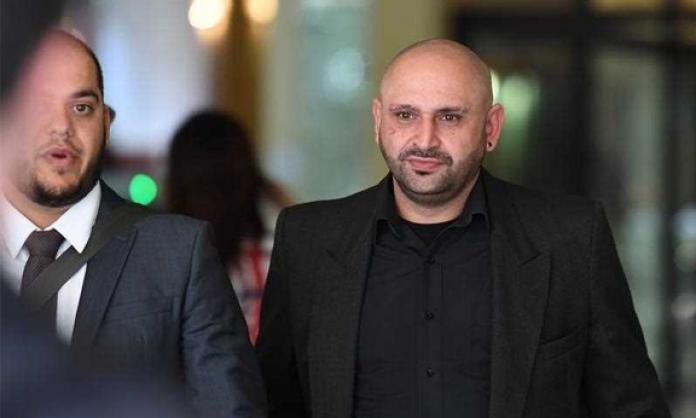To no fanfare – unlike his arrest in Sydney in July 2017 – weapons charges against Khaled Merhi have been dropped.
NSW Police sought no penalty, conviction or costs. This is a very useful reminder of the bigger picture of extremely well-publicised raids on Muslims on trumped-up charges that are later quietly dismissed.
When arrested, Merhi was beaten, suffering a gash to the face and a back injury, denied medication and then interrogated for eight days for having what police called a “prohibited weapon”, allegedly to be used in a terror plot to bring down an Etihad plane.
The “prohibited weapon” was an electric fly swat (available on eBay for a few dollars) that he had modified so it could be used to light a gas stove or barbecue.
Inference of terrorist criminality by the mere fact of his religion was enough to damn him.
Police described the device as a home-made taser. But in court on 30 May, they acknowledged that the device was significantly less powerful. In fact, according to police prosecutor Amin Assaad, Merhi’s fly swat was 300 times less powerful than a taser.
This so-called plot also involved two other Muslim men, Khaled Khayat and Mahmoud Khayat, who allegedly planned to smuggle a bomb onto a plane via the highly credible method of taking a metal meat grinder as hand luggage.
The charges against them (the usual thought crimes of “planning or preparing to commit a terrorist act”) are being pursued. They were denied bail. If they too are acquitted when they come to trial next March, as the vast majority of those arrested in such raids have been, they will have been in jail for 20 months for committing no crime.
In the 2016 report “A Community Terrorised – A time line of all raids since 2001”, the group Government Intervention in the Muslim Community analysed raids on which information was available.
It found an “alarming picture” of “false arrests, botched raids, brutal assaults, under-handed tactics, exaggerated threats, leaked operations, baiting, bullying, media fanfare, overkill police theatrics, and cases thrown out of court”.
And it found that “less than 15 percent of raids and searches” resulted in a terror-related conviction. The crime usually was the “crime” of being Muslim.









